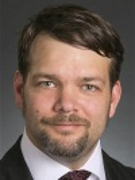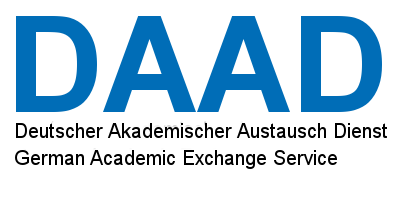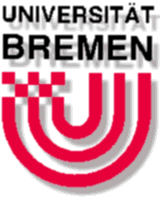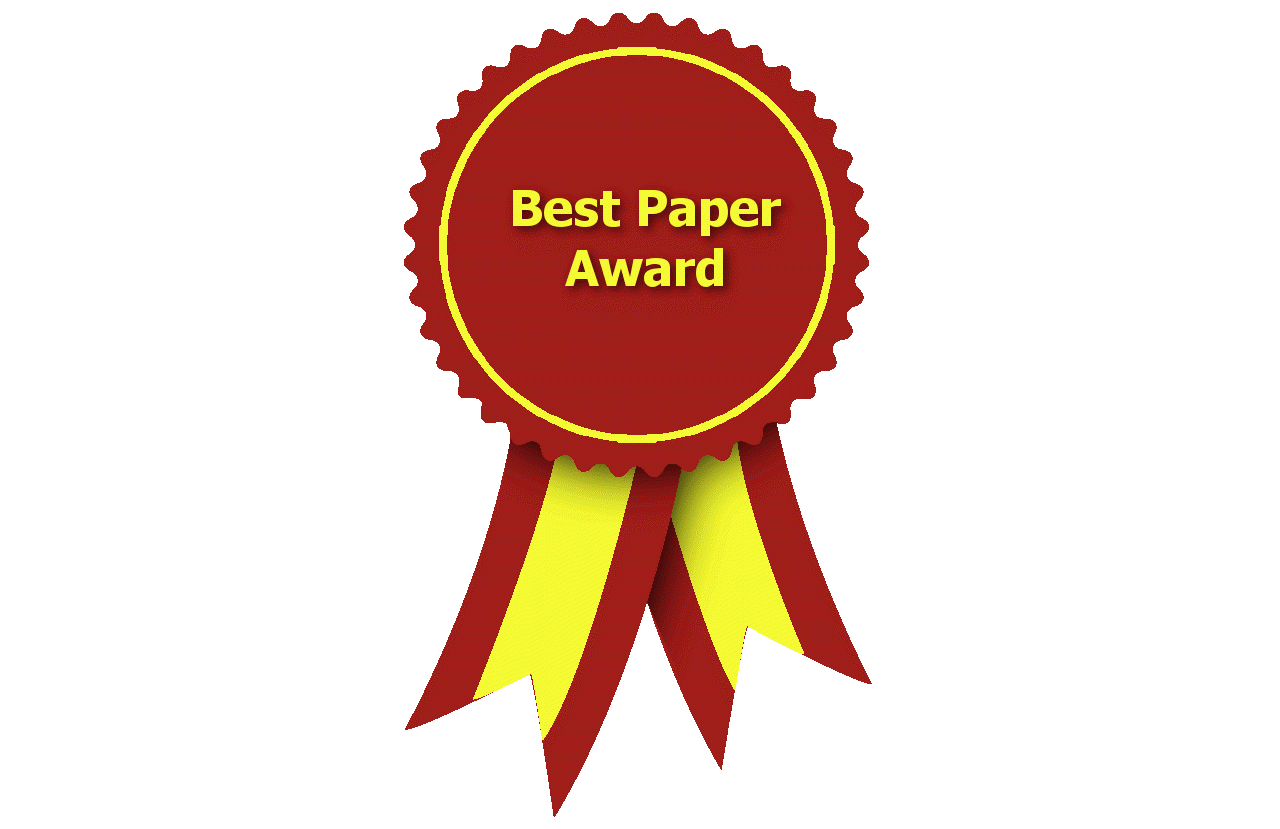Dr. Manfred Eppe

Photo: UHH/Knowledge Technology
Postdoctoral Research Associate
Knowledge Technology
Address
Office
Contact
About me
I am currently a postdoctoral research associate at the Knowledge Technology Institute at the University of Hamburg. I work on data-driven methods for neuro-semantic systems, data science, machine learning and cognitive robotics. I am particularly interested in cognitive computational models for intelligent robots and agents.
Before coming to Hamburg, I was a postdoctoral fellow at the International Computer Science Institute (ICSI) at the University of California at Berkeley where my focus was on human-robot interaction using neurocognitively inspired methods for natural language understanding. I moved to Berkeley in 2015, when I was a postdoc at the Artificial Intelligence Research Institute (IIIA-CSIC) in Barcelona, Spain, within the COINVENT project. At IIIA-CSIC, I worked on AI methods for concept representation and concept blending. I obtained my Ph.D. in Computer Science from the University of Bremen, Germany in 2014, where I gained a background in robotic applications of logical formalizations of symbolic reasoning, epistemic action theory and commonsense reasoning in assistive service robotics and smart environments. I am always open for collaborations and new ideas, so please do not hesitate to contact me.(eppe"AT"informatik.uni-hamburg.de)
Curriculum Vitae
- 2018 - now: Principal Investigator at the Knowledge Technology Group at the University of Hamburg, Germany
- 2017 - 2018: Postdoc at the Knowledge Technology Group at the University of Hamburg, Germany
- 2015 - 2017: Postdoc at the International Computer Science Institute (ICSI) and University of California at Berkeley, California, USA
- 2014 - 2015: Postdoc at the Artificial Intelligence Research Institute of the Spanish National Research Council (IIIA-CSIC), Barcelona, Spain
- 2010 - 2014: Doctoral research at the University of Bremen, Germany. Acquired doctorate in 2014 with summa cum laude degree.
- 2009 - 2010: Undergrad research at the University of Bremen, Germany, and the German Research Center for Artificial Intelligence (DFKI)
Research
Curious Hierarchical Actor-critic Reinforcement Learning
The following is a supplementary video for our recent paper Curious Hierarchical Actor-critic Reinforcement Learning, published at the International Conference on Artificial Neural Networks (ICANN) 2020.
Visuo-Motor Coordination, Interactive Perception, and Goal-Directed Problem-Solving
As a member of the Knowledge Technology group in Hamburg, I work on various problems concerning neuro-symbolic integration, intelligent cognitive robotics and language understanding. In a recent project, we have integrated object detection- and tracking system based on convolutional networks with a deep network for grasping. Our implementation platform is the Neurally Inspired COmpanion (NICO) robot, which uses the method to distinguish and grasp a specific object in sparsely cluttered environments.
We use the same robot also to realize interactive perception, i.e., the execution of an action with the purpose of generating a signal that the robot can analyze. In this edutainment video, the robot shakes visually indistinguishable objects to generate an audio signal that it can classify.
Natural Language Understanding for Human Robot Interaction
At ICSI, Berkeley, I collaborate with Jerry Feldman et al. to integrate a framework that captures the deep semantics of natural language using Embodied Construction Grammar with robotic systems. This is used to facilitate natural Human Robot Interaction. Herein, it outperforms current natural language understanding systems for robotics, that are mostly based on simple context-free grammars, in that it allows for advanced linguistic reference resolution, conditional commands, and clarification. The below video illustrates its capabilities.
Conceptual Blending and Computational Creativity
In Cognitive Science, Conceptual Blending is deemed to be a fundamental and uniquely human method for creativity. In Barcelona, I have worked in the COINVENT project, where we computationalized the cognitive blending theory as formulated by Gilles Fauconnier and Marc Turner, and developed a framework that is capable of blending two existing concepts to invent a novel one. It currently supports the Common Algebraic Specification Logic (CASL) to specify concepts in first order logic. As example domains, we investigate music and mathematics. For illustration, consider the following video by my colleague Ewen Maclean from University of Edinburgh, UK, which shows how the system is used for music harmonization and to facilitate mathematical proofs.
Action Planning for Cyber-Physical Systems
At the University of Bremen, I worked on epistemic action planning for cyber-physical systems. Specifically, I developed the HPX online planning system, which employs the online Answer Set Programming solver oclingo to dynamically generate and repair plans while a robot is executing the plans. Due to its comparably low computational complexity in domains with many unknown contingencies, HPX is particularly well suited to perform failures diagnosis and dynamic plan repair in robotic environments. The following video shows how the HPX planner is applied for Smart Home control in the Bremen Ambient Assisted Living Lab (BAALL), in combination with autonomous robotic wheelchairs. The BAALL is equipped with automatic doors, illumination control, adjustable furniture and many more actuators and sensors. The autonomous wheelchair "Rolland" is designed to act autonomously in narrow indoor environments. The video illustrates a scenario where two autonomous wheelchairs can be used to bring a person to the bathroom. Once the goal is received and interpreted via speech recognition, the HPX system generates a plan, involving the first wheelchair to bring the person to the bathroom. However, an abnormality occurs in that the passage of the wheelchair is blocked by the little box. This system failure is postdicted by the system and the plan is repaired. The new plan involves the other wheelchair driving to the person and bringing him to the bathroom.
Publications
Articles in Review at Conference Proceedings and Journals
- Manfred Eppe, Christian Gumbsch, Matthias Kerzel, Phuong D.H. Nguyen, Martin V. Butz and Stefan Wermter "Hierarchical principles of embodied reinforcement learning: A review". In Review at Nature Machine Intelligence, 2021 (arxiv)
- Phuong D.H. Nguyen, Manfred Eppe and Stefan Wermter "Robotic self-representation improves manipulation skills and transfer learning". In Review at the International Conference on Robots and Automation (ICRA), 2021 (arxiv)
- Thilo Fryen, Manfred Eppe, Phuong D.H. Nguyen, Timo Gerkmann and Stefan Wermter "Reinforcement Learning with Time-dependent Goals for Robotic Musicians". In Review at the International Conference on Robots and Automation (ICRA), 2021 (arxiv)
Articles in Conference Proceedings and Journals
- Manfred Eppe and Pierre-Yves Oudeyer "Intelligent Behavior Depends on the Ecological Niche". Künstliche Intelligenz - Special Issue on Developmental Robotics, 2021 (open access)
- Phuong D.H. Nguyen, Yasmin Kim Georgie, Ezgi Kayhan, Manfred Eppe, Verena Vanessa Hafner and Stefan Wermter "Sensorimotor representation learning for an" active self" in robots: A model survey". Künstliche Intelligenz - Special Issue on Developmental Robotics, 2021 (arxiv)
- Matthias Kerzel, Fares Abawi, Manfred Eppe and Stefan Wermter "Enhancing a Neurocognitive Shared Visuomotor Model for Object Identification, Localization, and Grasping With Learning From Auxiliary Tasks". IEEE Transactions on Cognitive and Developmental Systems, 2020 (open access)
- Frank Röder, Manfred Eppe, Phuong D.H. Nguyen and Stefan Wermter "Curious Hierarchical Actor-critic Reinforcement Learning" International Conference on Artificial Neural Networks (ICANN), 2020 (pdf).
- Manfred Eppe, Phuong D.H. Nguyen and Stefan Wermter "From semantics to execution: Integrating action planning with reinforcement learning for robotic causal problem-solving" Frontiers in Artificial Intelligence and Robotics, 2019 (open access).
- Pablo Barros, Manfred Eppe, German I. Parisi, Xun Liu and Stefan Wermter "Expectation Learning for Stimulus Prediction Across Modalities Improves Unisensory Classification" Frontiers in Artificial Intelligence and Robotics, 2019 (open access).
- Manfred Eppe, Sven Magg and Stefan Wermter "Curriculum goal masking for continuous deep reinforcement learning" IEEE International Conference on Developmental Learning and Epigenetic Robotics (ICDL-Epirob), 2019 (pdf).
- Matthias Kerzel, Manfred Eppe, Stefan Heinrich, Fares Abawi and Stefan Wermter "Neurocognitive Shared Visuomotor Network for End-To-End Learning of Object Identification, Localization and Grasping on a Humanoid Robot" IEEE International Conference on Developmental Learning and Epigenetic Robotics (ICDL-Epirob), 2019.
- Ahmed Marzouk, Pablo Barros, Manfred Eppe and Stefan Wermter "The Conditional Boundary Equilibrium GenerativeAdversarial Network and its Application to FacialAttributes" International Joint Conference on Artificial Neural Networks (IJCNN), 2019.
- Roberto Confalonieri, Tarek Besold, Mihai Codescu and Manfred Eppe "Enabling Technologies for Concept Invention" Concept Invention. Computational Synthesis and Creative Systems, pp 189-219, 2018 (Springer).
- Manfred Eppe, Matthias Kerzel, Erik Strahl and Stefan Wermter "Deep Neural Object Analysis by Interactive Auditory Exploration with a Humanoid Robot" International Conference on Intelligent Robots and Systems (IROS), 2018 (pdf).
- Erik Strahl, Matthias Kerzel, Manfred Eppe, Sascha Griffiths and Stefan Wermter "Hear the Egg — Demonstrating Robotic Interactive Auditory Perception" International Conference on Intelligent Robots and Systems (IROS), 2018 (pdf).
- Manfred Eppe, Tayfun Alpay, and Stefan Wermter "Towards End-to-End Raw Audio Music Synthesis" International Conference on Artificial Neural Networks (ICANN), 2018 (pdf).
Best Paper Award!
- Manfred Eppe, Ewen MacLean, Roberto Confalonieri, Oliver Kutz, Marco Schorlemmer, Enric Plaza and Kai-Uwe Kühnberger "A Computational Framework for Concept Blending" Artificial Intelligence, Elsevier, 2018 (pdf).
- Manfred Eppe, Tayfun Alpay, Stefan Wermter "An Analysis of Subtask-Dependency in Robot Command Interpretation with Dilated CNNs" European Symposium on Artificial Neural Networks (ESANN), 2018 (pdf).
- Roberto Confalonieri, Manfred Eppe, Marco Schorlemmer, Oliver Kutz, Rafael Peñaloza and Enric Plaza "Upward Refinement Operators for Conceptual Blending in the Description Logic EL++" Annals of Mathematics and Artificial Intelligence (AMAI 2018) (pdf).
- Manfred Eppe, Matthias Kerzel, Sascha Griffiths, Hwei Geog Ng and Stefan Wermter "Combining Deep Learning for Visuo-motor Coordination with Object Detection and Tracking to Realize a High-level Interface for Robot Object-picking" IEEE RAS International Conference on Humanoid Robots (Humanoids 2017), IEEE Publishing (pdf).
- Manfred Eppe, Sean Trott and Jerome Feldman "Exploiting Deep Semantics and Compositionality in Natural Language for Human-Robot-Interaction" International Conference on Inteligent Robots and Systems (IROS 2016), IEEE Publishing (pdf).
- Manfred Eppe, Sean Trott, Vivek Raghuram, Jerome Feldman and Adam Janin "Application-Independent and Integration-Friendly Natural Language Understanding" Global Conference on Artificial Intelligence (GCAI 2016), EPiC Series in Computing, EasyChair Publications (pdf).
- Sean Trott, Manfred Eppe and Jerome Feldman "Communicating Intentions in Human-Robot Interaction" International Symposium on Robot and Human Interactive Communication (RO-MAN 2016) (pdf).
- Manfred Eppe, Roberto Confalonieri, Ewen Maclean, Maximos Kaliakatsos, Emilios Cambouropoulos, Mihai Codescu, Marco Schorlemmer and Kai-Uwe Kuehnberger "Computational invention of cadences and chord progressions by conceptual chord-blending" 24th International Joint Conference on Artificial Intelligence (IJCAI 2015). (pdf)
- Manfred Eppe and Mehul Bhatt "Approximate Postdictive Reasoning with Answer Set Programming" Journal of Applied Logic (2015). (pdf)
- Manfred Eppe and Mehul Bhatt "A History Based Approximate Epistemic Action Theory for Efficient Postdictive Reasoning" Journal of Applied Logic (2015). (pdf)
- Manfred Eppe, Ewen Maclean, Oliver Kutz, Roberto Confalonieri, Marco Schorlemmer and Enric Plaza "ASP, Amalgamation, and the Conceptual Blending Workflow" 13th International Conference on Logic Programming and Nonmonotonic Reasoning (LPNMR 2015). (pdf)
- Roberto Confalonieri, Manfred Eppe, Marco Schorlemmer, Oliver Kutz, Rafael Peñaloza and Enric Plaza "Upward Refinement for Conceptual Blending in Description Logic - An ASP-based Approach and Case Study in EL++" 1st Workshop on Ontologies and Logic Programming for Query Answering (ONTOLP 2015). (pdf)
- Jakob Suchan, Michael Spranger, Mehul Bhatt and Manfred Eppe "Grounding Dynamic Spatial Relations for Embodied (Robot) Interaction" 13th Pacific Rim International Conference on Artificial Intelligence (PRICAI 2014). (pdf)
- Manfred Eppe, Mehul Bhat, Jakob Suchan and Brian Tietzen "ExpCog: Experiments in Commonsense Cognitive Robotics" 9th International Workshop on Cognitive Robotics (CogRob 2014). (pdf)
- Manfred Eppe, Mehul Bhatt and Frank Dylla "Approximate Epistemic Planning with Postdiction as Answer-Set Programming" 12th International Conference on Logic Programming and Nonmonotonic Reasoning (LPNMR 2013). (pdf)
- Manfred Eppe and Mehul Bhatt "Narrative Based Postdictive Reasoning for Cognitive Robotics" 11th International Symposium on Logical Formalizations of Commonsense Reasoning (CR 2013). (pdf)
- Manfred Eppe and Frank Dylla. "Towards Epistemic Planning Agents" 5th International Conference on Agents and Artificial Intelligence (ICAART 2013).
- Manfred Eppe and Dominik Dietrich. ”Interleaving Planning and Plan Execution with Incomplete Knowledge in the Event Calculus” 6th Starting Artificial Intelligence Research Symposium (STAIRS 2012).
Theses
- PhD Thesis (Dec. 2013): Postdictive Reasoning in Epistemic Action Theory (pdf)
- Master's Thesis (2010): Exploiting Qualitative Spatial Information to Generate Sensible Hypothesis for a Particle Filter (pdf)
Editorial Work
- GI Zeitgeist 2012 - Proceedings. AKA Verlag. University of Münster, Germany. Editors: A. Degbelo, J. Brink, M. Chipofya, T. Gerkensmeyer, M. Humayun, J. Wang, K. Broelemann, D. Wang, M. Eppe, J.H. Lee
Acquired Research Grants and Projects
- 2020 - € 546,000 - Initiator and coordinator of the project "Learning Conversational Action Repair for Intelligent Robots" (LeCAREbot), jointly with Prof. Stefan Wermter. The project investigates neuro-semantic methods for conversational repair and language understanding.

- 2018 - € 351,400 - Initiator and coordinator of the project "Ideomotor Transfer for Active Self Emergence" (IDEAS), jointly with Prof. Stefan Wermter. The project is part of the DFG priority programme "The Active Self" and funds a 3-year postdoctoral position at the University of Hamburg.

- 2018 - € 100,000 - Initiator and coordinator of the project "The Neural Microcircuits of Problem-solving and Goal-directed Behavior", jointly with Prof. Stefan Wermter. The project has been funded by the Experiment! programme of the Volkswagen Stiftung (funding rate < 5%).

- 2017 - € 21,600 - 6-month postdoctoral reintegration fellowship at the University of Hamburg, Germany. Provided by the German Academic Exchange Service (DAAD)

- 2016 - Received a hardware grant by NVIDIA.

- 2015 - € 205,000 - 2-year postdoctoral fellowship at the International Computer Science Institute (ICSI) and the University of California at Berkeley. Provided by the German Academic Exchange Service (DAAD).

- 2010 - € 72,000 - 3.5-year PhD scholarship within the International Research Training Group on the Semantic Integration of Geospatial Information. (IRTG-SIGI). Provided by the German Research Foundation (DFG).

- 2009 - € 12,000 - 1-year undergrad research fellowship at the University of Bremen. Provided by University of Bremen.

Prices and Awards
Best paper award for our contribution "Towards End-To-End raw Audio Music Synthesis", presented at the 27th International Conference in Artificial Neural Networks (ICANN 2018)

Invited Talks
- 28.9. 2019 - "Artificial Intelligence: Methods, Opportunities and Challenges" A general talk on Artificial Intelligence to leading intellectual property directors of companies including Volkswagen AG (GER), Sony (JP), Philips (NL), Electrolux (SE), Bracco (IT), Safran (FR), Nantworks (US), und Thyssenkrupp (GER).
- 29.4. 2019 - Podium discussion in the "Museum der Arbeit" (Hamburg Museum of Work) on the topic "Arbeit, Autos, Androiden: Was versprechen wir uns von Künstlicher Intelligenz?" (Work, cars, androids: What do we expect from Artificial Intelligence?)
- 5.12. 2018 - Invited Talk: "Warum mein Staubsauger nicht mit mir reden kann: von Fähigkeiten und Unfähigkeiten Künstlicher Intelligenz" (Why can't my vacuum cleaner talk to me? About capabilities and incapabilities of Artificial Intellgience) FORUM – Junge Wissenschaft im Gespräch, Gästehaus der Uni Hamburg,
Teaching
- Summer term 2020 – Course: From Data to Knowledge: AI-based Scientific Workflows for Knowledge Generation — Self-responsible conception and teaching of a method competences course at the University of Hamburg, Germany
- Winter term 2019/2020 - Lecture: Data Science -- Self-responsible conception and teaching of a lecture (externally) at the West Coast University of Applied Sciences, Heide, Germany
- Summer term 2019 and 2020 - Bachelor project: Cognitive Robotics Self -- responsible conception and teaching of a student project and the University of Hamburg
- Winter term 2018/2019 - Bio-inspired Artificial Intelligence -- Teaching lectures on Embodied Language Robots and Machine Learning at the University of Hamburg
- Summer term 2018 - Seminar: Cognitive Robotics for Assistive Technology -- Self-responsible conception and teaching of a seminar at the University of Hamburg
- Winter term 2017/2018 - Seminar: Bio-inspired Artificial Intelligence -- Self-responsible supervision and teaching of students within a seminar at the University of Hamburg
- Summer term 2017 - Neural Networks seminar -- student supervision at the University of Hamburg, Germany
- Dec. 2016 - Embodied Language Robots -- guest lecture at the Knowledge Technology Institute, University of Hamburg, Germany
Travel Grants
- 2018 - Travel grant for the ICANN 2018 conference, Rhodes, Greece. Provided by the German Academic Exchange Service (DAAD).
- 2015 - Travel grant for the IJCAI 2015 conference, Buenos Aires, Argentina. Provided by IJCAI.
- 2013 - Travel grant for the 1st Winter School on AI and Robotics 2013, Örebro, Sweden. Provided by the University of Örebro.
- 2013 - Travel grant for the Commonsense Reasoning Symposium 2013, Cyprus. Provided by the Artificial Intelligence Journal (Elsevier).
- 2011 - Travel grant for the Interdisciplinary College 2011 (IK2011), Günne, Germany. Provided by Gesellschaft für Informatik.
Commitee Membership and Reviewing
- 2020 - PC member, German Conference on Artificial Intelligence (KI - Künstliche Intelligenz)
- 2019 - Reviewer, Frontiers in Artificial Intelligence and Robotics
- Since 2018 - PC member, International Conference on Artificial Neural Netorks (ICANN)
- Since 2018 - PC member, International Conference on Development and Learning and Epigenetic Robotics (ICDL-Epirob)
- 2017 - PC member, International Joint Conference on Artificial Intelligence (IJCAI)
- 2016 - Principal organizer of the 1st int'l Workshop on Creative Agents (CREAS), co-located with AAMAS 2016
- 2016 - PC member, International Joint Conference on Artificial Intelligence (IJCAI)
- 2016 - PC member, International Workshop on Computational Models of Social Creativity (CMSC)
- 2015 - Reviewer, Journal of Experimental and Theoretical Artificial Intelligence (JETAI) -- Special Issue on Cognitive Robotics -- Editors: Mehul Bhatt, Esra Erdem, Fredrik Heintz, Michal Spranger (Taylor & Francis)
Membership in Scientific Societies
- Since 2016 - IEEE - IEEE is the world's largest technical professional organization dedicated to advancing technology for the benefit of humanity.
- Since 2015 - Association for Neural-Symbolic Integration (NeSy)
- Since 2011 - Gesellschaft für Informatik e.V. (German Informatics Society)
